
China is looking into Africa
Sven RIchter, Fund Manager at Drakens Capital Fund Managers, looks at China’s One Belt One Road Initiative and what it means for Africa

Sven RIchter, Fund Manager at Drakens Capital Fund Managers, looks at China’s One Belt One Road Initiative and what it means for Africa
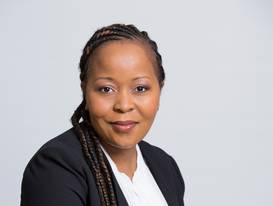
AGF’s Anna Lyudvig sits down with Ann Leepile, Head of Absa Asset Management, to discuss the firm, its franchise model and how to succeed as a female in a male-dominated industry
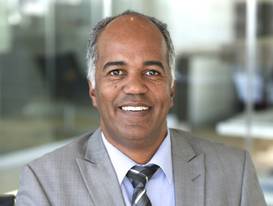
The need for energy and the case for investing in energy in the region has generally been well documented. The Southern Africa Community Development (SADC) secretariat’s Regional Infrastructure Development Plan estimates that only 5% of rural areas in the region have any access to electricity. The southern African region as a whole has low access to electricity of about 42 percent compared to around 36 percent for the East African Community and 44 percent for the Economic Community of West African States.
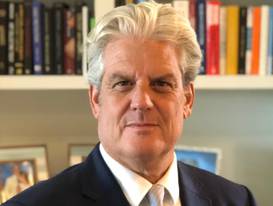
Zimbabwe’s President Emmerson Mnangagwa had regarded the recent elections as his opportunity to rehabilitate the country in the eyes of the international community. To what extent has that opportunity been lost? Here’s an assessment from Dr. Christopher McKee (pictured), the CEO of PRS Group, the biggest quant-driven country risk analysis firm, whose data feeds Transparency International, the IMF and many of Wall Street’s largest investment firms.
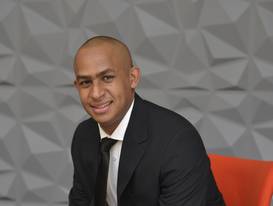
The interest rate risk of the All Bond Index has been systemically increasing over time. This is driven by persistently high fiscal deficits and the resultant issuance of longer term SA government debt. Many retirement fund investors use the All Bond Index (ALBI) as their benchmark for bond allocations. They should be conscious of the steadily rising volatility of bond returns and that such bond allocations are riskier than they have been historically. While the ALBI has been used as a proxy to match pension funds’ liabilities, the ALBI itself has probably grown more volatile than pensioner liabilities.

Goodwell Investments has recently launched Goodwell Microfinance Development Company IV (Goodwell IV), a new €20m fund for investments in the inclusive economy in Sub-Saharan Africa. AGF catches up with Wim van der Beek, Partner at Goodwell Investments, to learn more
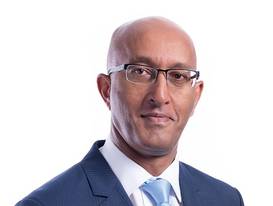
The Global Impact Investing Network defines impact investments as investments which are made into companies, organisations and funds with the intention to generate social and environmental impact alongside a financial return. It highlights that impact investment has attracted a wide variety of investors, both individual and institutional, and that it is taking place all over the world and across all asset classes.

As far as legal and regulatory developments in Nigeria’s private equity industry goes, it appears that the dots are finally beginning to connect, writes Olubunmi Abayomi-Olukunle, Lead Transaction Counsel at Balogun Harold

African bankers are positive about the growth of trade finance, although considerable obstacles stand in the way of the continent reaching its full potential, explains Doina Buruiana, Project Manager at the ICC Banking Commission
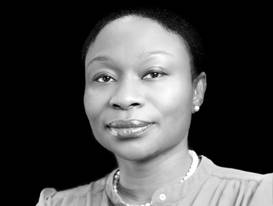
AGF’s Anna Lyudvig speaks with Enitan Obasanjo-Adeleye, Head of Research, AVCA about infrastructure investments in Africa and whether there is the best template for infrastructure investing
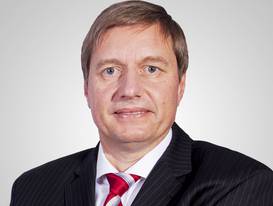
There are many misconceptions about Africa and African investing. One of the more common remarks we hear when introducing Africa to potential investors is, “I know, this is a high-risk investment with a high potential return”. If we use the MSCI index for Africa excluding South Africa and compare the returns and volatility of this index to a range of other global indices, we can see that this is simply not true. The graph below shows US dollar data from June 2, 2002 (earliest available for Africa ex-South Africa) to April 30, 2018.
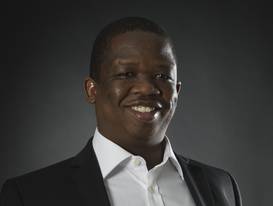
AGF’s Anna Lyudvig speaks with Keonethebe Bosigo (pictured) and Seth Boakye-Dankwah, Portfolio Managers of the Mazi Capital Prime Africa Fund, to learn more about the fund and the South African firm
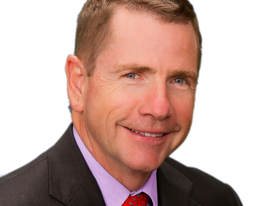
Criterion Africa Partners (CAP) is an independent private equity management company that invests across the forestry value chain in select countries in Sub-Saharan Africa. The firm was established by the former Global Environment Fund (GEF) forestry investment team in 2017. AGF’s Anna Lyudvig sits down for a one on one with George G. McPherson, Managing Director, to discuss the firm and opportunities in the forestry sector.
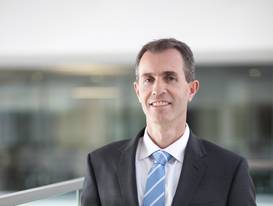
Domestic equity markets followed global markets higher as trade tensions between the US and China eased somewhat and investors’ attention shifted towards a robust Q1 earnings reporting cycle abroad. The US Dollar strengthened on the back of higher interest rate expectations and weaker European data. This resulted in a lower rand and higher SA bond yields. The domestic equity market benefited from a weaker rand and a sharp rebound in mining shares as the High Court granted a declaratory order on “once empowered always empowered” thereby removing uncertainty on the ownership of existing mining rights. The spike in the oil price due to increased geopolitical tensions in the Middle East, strong underlying demand and disciplined output from OPEC and Russia further supported the performance of the sector during the month. But it wasn’t just the JSE Resources sector that performed well. Even though headline inflation in South Africa fell further due mainly to lower food prices, domestic bond yields moved much higher in sympathy with higher developed market yields where inflationary pressures are mounting. Market euphoria over South Africa’s leadership transition has abated as the year has progressed. Although policy uncertainty with regards to land ownership and the Mining Charter remains, investors should not lose sight of the recent positive changes implemented by president Ramaphosa. In addition to the High Court’s declaratory order relating to ownership of existing mining rights (which will be challenged by government), several other actions were taken during the month, including the appointment of a new Chairperson and Interim board at Denel and the appointment of an Economic Advisory Council with an investment team to help raise over $100bn over the next five years. Furthermore, minister Radebe signed a R56bn contract with renewable energy producers. The steps taken so far to stabilise state-owned enterprises (SOEs), with the objective of returning them to financial sustainability, are starting to yield positive outcomes. A few months ago, capital markets were completely shut to the SOEs, but now funders have become more comfortable and SOEs have been able to refinance maturing debt. This is critical not only for the certainty of medium-term service delivery, but also for the reduction of the immediate threat to government finances. The task ahead is still enormous for Public Enterprises Minister Pravin Gordhan, but some success spells good news for industries supplying the various SOEs as well as those consuming their services. Consumer and Business confidence has returned, which bodes well for an acceleration in economic activity towards the latter part of this year as companies start the process of rebuilding depleted inventory from an improvement in final demand. The latest confidence survey compiled by the Bureau for Economic Research (BER) highlighted that one of the inputs in measuring confidence, the “Political Constraints to Business” index, has fallen to a two-year low. At the same time, there has been a sharp recovery in intended investment in machinery and equipment, which provides further evidence that the economy is one step closer to the start of the next investment spending cycle.